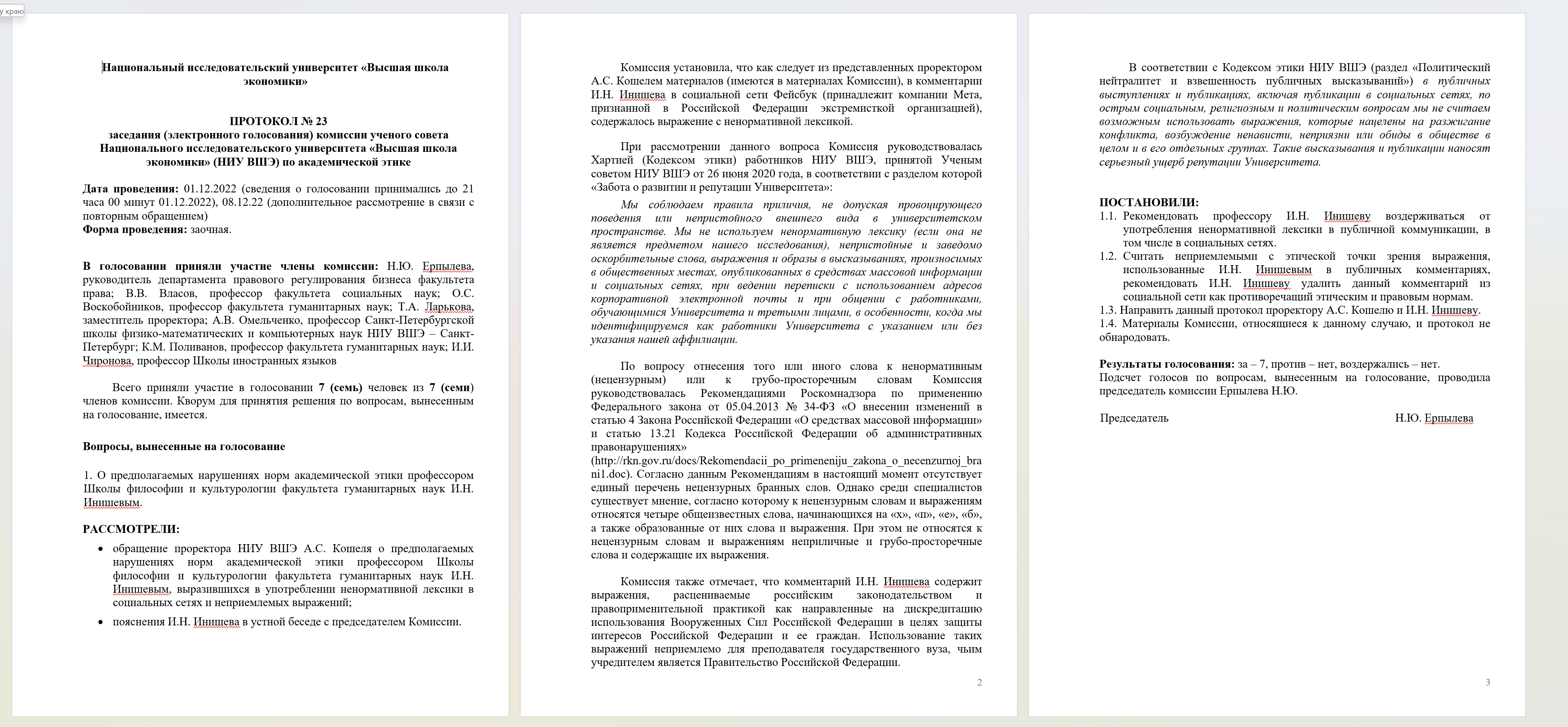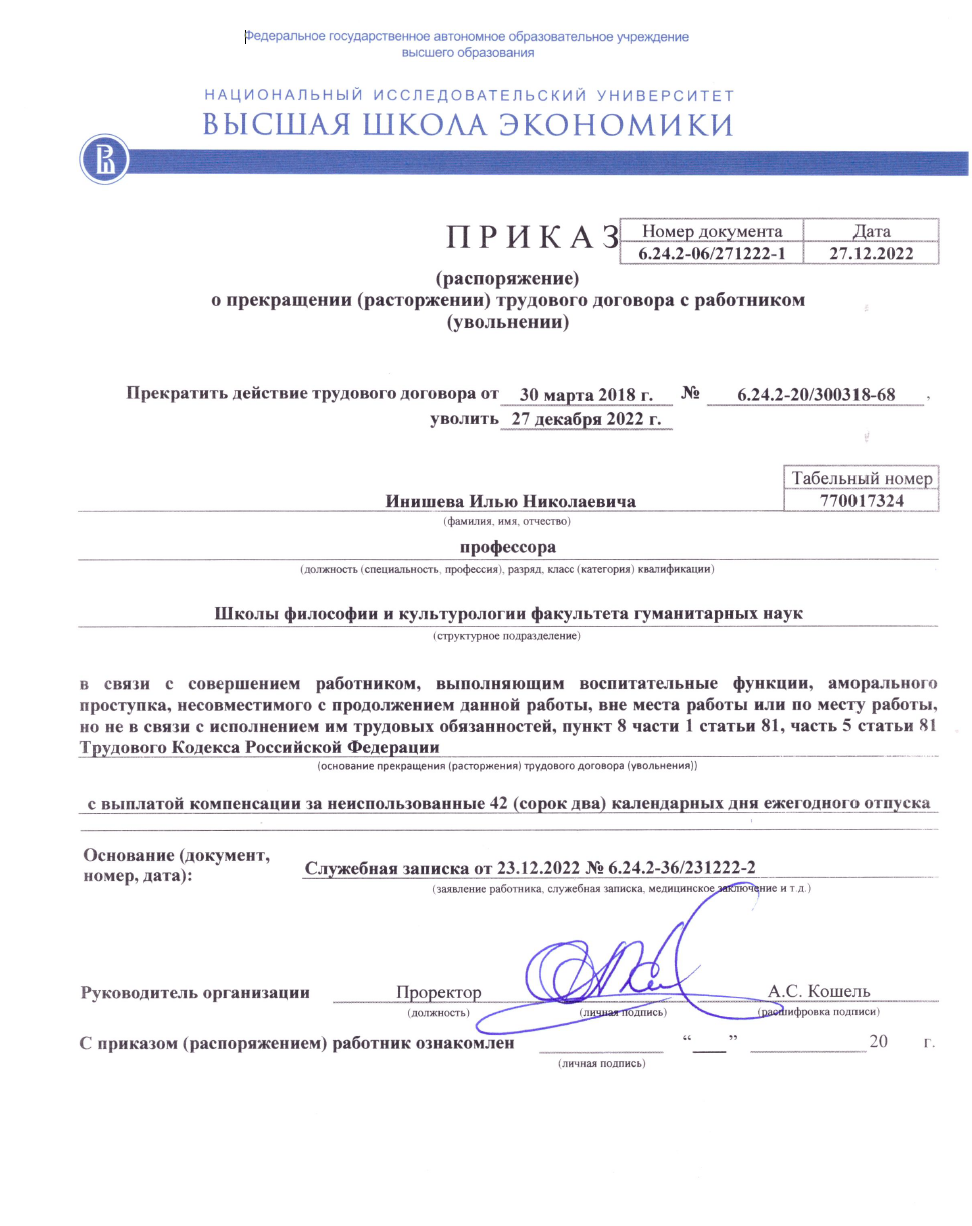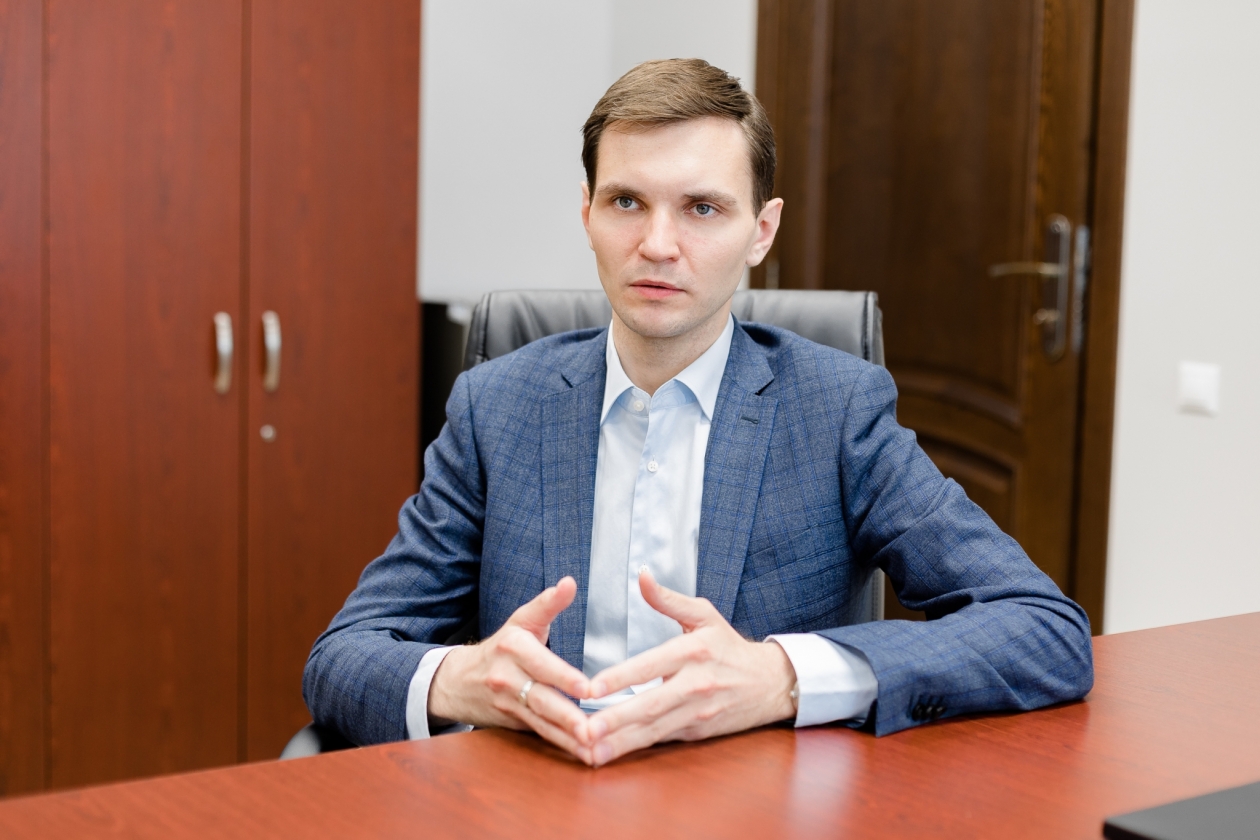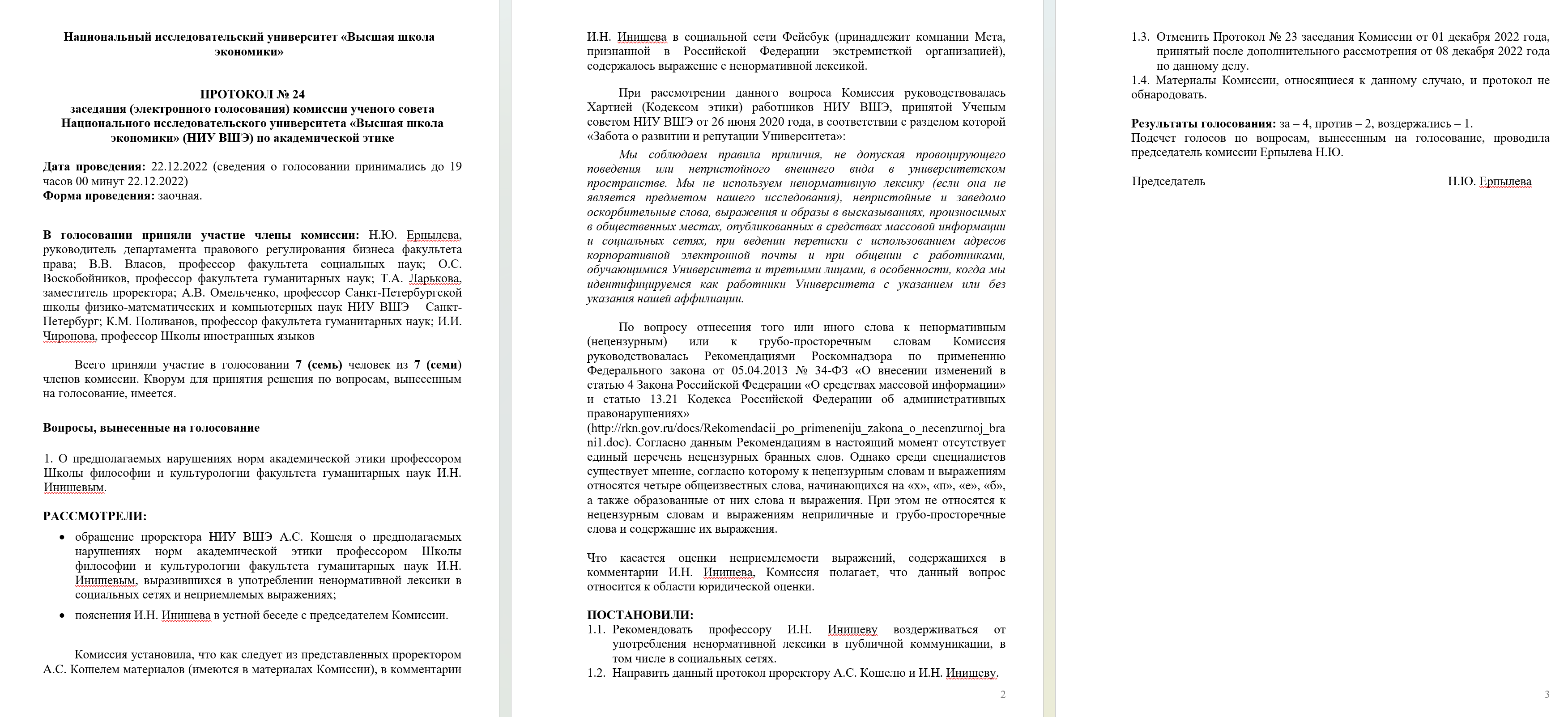On December 28, it became known that the Higher School of Economics in Moscow fired Ilya Inishev, an associate professor at the School of Cultural Studies. The official reason for his dismissal was that he committed an "immoral act" incompatible with the continuation of work. The formal pretext for dismissal was the protocol of the “HSE Academic Council Commission on Academic Ethics” regarding Inishev’s post on Facebook (as Inishev himself explained, this was a post in which he indicated the direction for the Russian warship). It follows from the protocol that the commission was outraged by the use of “profanity”, this is the official part of the claim, but the same protocol also indicates the real reason: the position regarding the war in Ukraine:
“The Commission also notes that I.N. Inisheva contains expressions that are regarded by Russian legislation and law enforcement practice as aimed at discrediting the use of the Armed Forces of the Russian Federation in order to protect the interests of the Russian Federation and its citizens. The use of such expressions is unacceptable for a teacher at a state university whose founder is the Government of the Russian Federation.”
All members of the commission voted unanimously, and its composition included:
N.Yu. Erpyleva, Head of the Department of Legal Regulation of Business, Faculty of Law;
V.V. Vlasov, Professor of the Faculty of Social Sciences;
O.S. Voskoboynikov, Professor of the Faculty of Humanities;
T.A. Larkova, Deputy Vice-Rector;
A.V. Omelchenko, Professor of the St. Petersburg School of Physics, Mathematics and Computer Science, National Research University Higher School of Economics – St. Petersburg;
K.M. Polivanov, Professor of the Faculty of Humanities;
I.I. Chironova, professor at the School of Foreign Languages.

The commission made a decision on December 1, and on December 27, by order of Vice-Rector Koshel, Inishev was dismissed:

Inishev himself explained that the chairman of the commission, Natalya Erpyleva, in a telephone conversation with him, directly admitted that profanity was only a pretext, since only this fell under the established norms of the ethical code, but in reality, the posts where he expresses his anti-war position were the reason for everything. Moreover, vice-rector Koshel himself sent her screenshots of his posts on Facebook, asking her to look into it (Koshel himself refused to comment on this situation to The Insider).

Among the signatories of the protocol was an ordinary professor at the National Research University Higher School of Economics, medievalist historian Oleg Voskoboinikov, who had previously spoken out against the war himself. True, according to him, the version of the protocol that came to Inishev was not final, but in the final version of protocol 23, there was no phrase about “inadmissibility, but only “The Commission also notes that I.N. Inisheva contains expressions that are currently regarded by Russian legislation and law enforcement practice as aimed at discrediting the Armed Forces of the Russian Federation. But he now considers this protocol a mistake in which the commission has already repented:
“My – and not only – signature under this phrase stands because, counting on human relations at our university, we hoped to calm the troubled ones and avert the worst troubles from a colleague. In doing so, we relied on our experience of recent years. But we seriously miscalculated, so we crossed out this judgment, drew up protocol No. 24, sent it to the vice-rector, annulling the previous protocols.
<…> Our protocols, according to the relevant provision, have no legal force. Therefore, Ilya Inishev was fired without taking into account our final verdict, which the formally supervising vice-rector has the right to do.
In any case, I believe that it was decided to make our commission, as they say, extreme in this disgusting story. The very expression “immoral act”, which does not appear in any of our protocols, of course, points to us, and not to Article 81 of the Labor Code of the Russian Federation. Since we are only facing the first call, the commission in the current situation is really turning into a punitive body, into a commission of applied politics, I consider its work impossible and have already announced my resignation. Whether other colleagues will follow me is up to them. What kind of commission will be next year is up to the HSE Academic Council. And this will not be an easy question.
Konstantin Polivanov also left the commission, he also told The Insider about the existence of a second protocol that annulls the first:
“Alas, this is an extremely unpleasant story for me and for my colleagues. We have adopted a new protocol, where we will cancel the one in your hands, but this does not change much. As you understand, the Ethics Commission does not make decisions on dismissals. But, nevertheless, at the moment I cannot remain in its composition and have submitted an application for withdrawal.
In the 24th protocol, there are no words about discrediting the armed forces:

As Inishev himself told The Insider, the wording about “discrediting” in the protocol appeared at the behest of HSE Vice-Rector Alexei Koshel. He also demanded the departure of Inishev and then signed the order of dismissal:
“The fact is that after the first version of the protocol, which mentions this profanity without context and a recommendation not to do this again, a second protocol appeared, which was preceded by the second protocol of the chairman of the commission, Natalya Yerpyleva. She said that Vice-Rector Koshel insisted on a tougher wording, namely, “bringing it under the article on discrediting the army.” This wording is there. As you know, it can be administrative and criminal. This is all at the discretion of the investigator. They included it all in the protocol. The commission changed its verdict at the behest of this vice-rector.”
Commission Chairman Natalya Erpyleva declined to comment on The Insider, citing the fact that they can only be given in agreement with the HSE press service. She only called the version of the 23rd protocol with words about the “unacceptability” of discrediting the army a “technical error” and confirmed that no changes in the text of the protocol after the vote of the commission members are possible.
On December 9, with this wording, another university employee who worked in the Perm branch of the Higher School of Economics, Associate Professor Dinara Gagarina, was fired. Her "immoral behavior" also included anti-war posts on social media. She reported that for several months the university management had put pressure on her, demanding that she leave of her own free will. The university closed her master's program.


